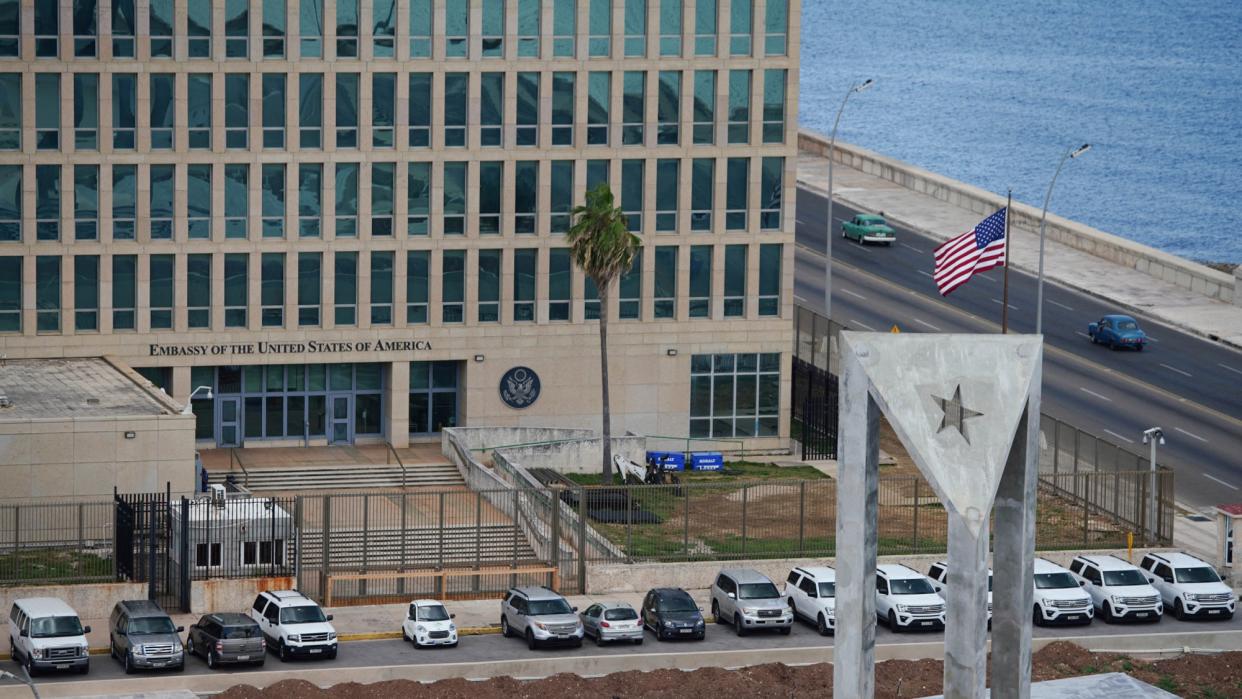
Questions remain as to the true origin of Havana Syndrome — a rare condition in which government employees at U.S. embassies "described sudden unexplained head pressure, head or ear pain, dizziness" and a variety of other symptoms, according to military officials. The United States has previously said that a foreign adversary was unlikely to be behind the illness, which was first reported by embassy employees in Havana, Cuba, and has since spread to Europe and Asia. But a new report has revealed that another country may indeed be causing the syndrome.
A joint investigation, published on March 31 by news outlets The Insider, "60 Minutes" and der Spiegel, concluded that Russia was likely the culprit of Havana Syndrome. The investigation reported that the mysterious symptoms "may have their origin in the use of directed energy weapons wielded by Unit 29155." This is a specialized unit of Russia's foreign intelligence service, the GRU, that is "skilled in subversion, sabotage and assassination," The New York Times said.
The investigation has uncovered evidence that Unit 29155 "has been experimenting with exactly the kind of weaponized technology experts suggest is a plausible cause for the mysterious medical condition that has to date affected over a hundred far-flung U.S. spies and diplomats," The Insider said. Russian diplomats have condemned the report as false. But what was uncovered about Russia and its possible link to Havana Syndrome, and how plausible is it?
What did the investigation find?
The yearslong look into the source of Havana Syndrome uncovered several findings that potentially identify Unit 29155 as the culprit. Among these was the fact that "senior members of the unit received awards and political promotions for work related to the development of 'non-lethal acoustic weapons,'" The Insider said. This term is used in the Russian military to "describe both sound- and radiofrequency-based directed energy devices," said The Insider, which could potentially have altering effects on a victim's brain.
Also suspicious are the movements of Unit 29155 agents around the world. Known members of the unit "have been geolocated to places around the world just before or at the time of" reported cases of Havana Syndrome, said The Insider. Many of these agents are reportedly experts in espionage, making them prime candidates for spreading the syndrome.
The scope of Unit 29155 is "global for conducting lethal operations and acts of sabotage," a former high-ranking CIA officer said to The Insider. The unit's mission is to "find, fix and finish, all in support of [Russian President] Vladimir Putin's imperial dreams," the officer said.
Many of those who have reported Havana Syndrome symptoms were working for either the CIA or FBI. The connecting thread with the targeted FBI agents is that "most, if not all ... were doing something related to Russia," Mark Zaid, an attorney representing those affected by Havana Syndrome, said to "60 Minutes."
"One of the things I started to notice was the caliber of our officer that was being impacted," Greg Edgreen, who previously ran an investigation into Havana Syndrome for the Pentagon, said to "60 Minutes." Those who came down with symptoms were not "our worst or middle-range officers," said Edgreen, noting that this "was happening to our top five, 10% performing officers across the Defense Intelligence Agency."
How has the US responded?
The new investigation contradicts the official viewpoint of the United States, which is that it's "very unlikely" a foreign adversary is behind Havana Syndrome. However, this 2023 conclusion did not "call into question the experiences and real health issues that U.S. government personnel and their family members — including CIA's own officers — have reported while serving our country," CIA Director William J. Burns said in a statement.
White House press secretary Karine Jean-Pierre also cast doubt on the new report, saying during a recent press briefing that the "intelligence community has not concluded that," in reference to Russia's involvement. However, Jean-Pierre added that the Biden administration has "taken this very seriously" and is "going to continue to do a comprehensive examination of the effects here that we're seeing and the potential causes."
While this new investigation does not definitively prove Russia is behind Havana Syndrome, it is "certainly compelling that the Russians are involved in it," former intelligence officer Marc Polymeropoulos said to USA Today.

